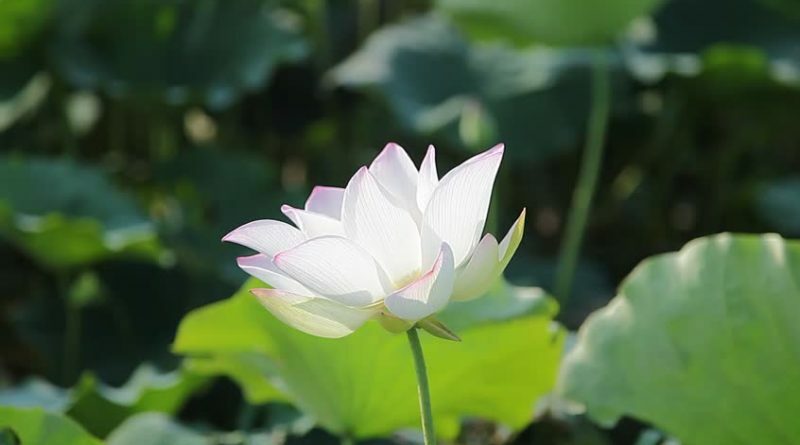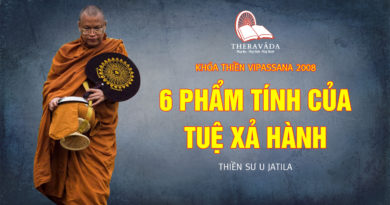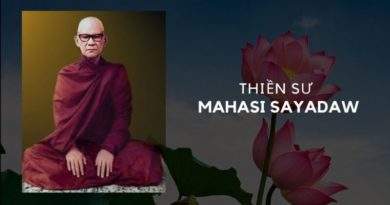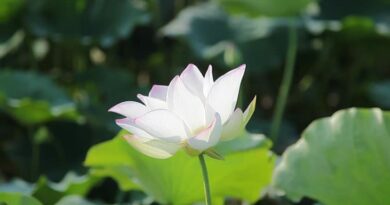Faqs On Anapana Courses For Children – S.n. Goenka
MAIN CONTENT
- 1.At what age could I start to teach my child to meditate?
- 2.What is your feeling about teaching Dhamma to children?
- 3.Is it necessary to introduce Vipassana into education?
- 4.Kindly give a few words on how students can use Vipassana.
- 5.You have started giving training in Anapana in some schools. How will this training benefit children?
- 6.Do you think that by this training children can become good citizens?
- 7.Are you thinking of conducting a Vipassana course exclusively for teenagers?
- 8.What are the guidelines regarding teaching sīla and the origins of the technique, while teaching Anapana in schools in the West? For example introducing Buddha without the school system’s thinking of it as a religion.
- 9.And what about sīla?
- 10.How can children be encouraged to practice at home if their families do not meditate? Can they attend Vipassana group sittings?
- 11.How can we remove thoughts of lust while we are studying?
- 12.I am a college student and I come here for Vipassana meditation. When I go back, my teacher says, “You are too young to practice meditation.” What should I do in such a situation?
- 13.What is the mind?
- 14.Who reforms the mind?
- 15.The mind remains full of thoughts and is unable to keep focussed at one place.
- 16.I cannot feel the inflow and outflow of respiration
- 17.I feel sleepy while meditating
- 18.What are we to understand by pure breath? What are we to understand by natural breath?
- 19.Why do you say “Bhavatu Sabba Mangalam” three times?
- 20.You have asked us to live in the present. Does this imply that we should not plan for the future at all? Does it mean that we should not be ambitious?
- 21.Why do we observe only the breath?
- 22.How can Anapana help to reform the mind? How can Anapana lead to purity of mind?
- 23.I suffer from physical discomfort such as agitation, headache, backache, nausea, etc. while meditating
- 24.What is the characteristic of a pure mind?
- 25.What is the significance of observing noble silence?
- 26.How can the observation of breath assist in practising the moral precepts (sila)?
- 27.How does the breath help in preserving our sila?
- 28.Why is it not right to break sila even as a joke?
- 29.Why shouldn’t we kill mosquitoes when they bite us?
- 30.If we lie for some good cause, will it still be an unwholesome action?
- 31.How can one protect oneself without breaking one’s sila?
- 32.If we happen to break our sila, how do we make amends for it?
- 33.Why shouldn’t we smoke cigarettes, or take alcohol or drugs?
- 34.What is the difference between Anapana and any other form of meditation?
- 35.How does one keep up the practice of Anapana simultaneously with yoga?
- 36.How can we succeed in this competitive world without being dishonest?
- 37.What are the characteristics of a good student?
- 38.How do we know that we are progressing on the path of Dhamma?
1.At what age could I start to teach my child to meditate?
Mr. S. N. Goenka: Before birth. Meditation should be taught when the child is growing in the womb. The child needs good vibrations while in the womb, so practise Vipassana. Every pregnant mother should practise more Vipassana because then you are helping two beings simultaneously. You are helping yourself, and you are helping the being which has not yet come out. Help them.
After that, when the child grows to five or six you can start teaching Anapana. Just be aware of the respiration for a few minutes; two, three, five minutes, enough. Don’t push too much. A few minutes of awareness of respiration, and then say; “All right, play.” After that, again a few minutes of respiration. So it will become like playing for the child. Later on, as he or she grows, increase the time. In this way you start giving the seed of Dhamma, and the child develops in an atmosphere of Dhamma.
2.What is your feeling about teaching Dhamma to children?
3.Is it necessary to introduce Vipassana into education?
4.Kindly give a few words on how students can use Vipassana.
5.You have started giving training in Anapana in some schools. How will this training benefit children?
Mr. S. N. Goenka: Actually the entire teaching has only one purpose: One should live peacefully and harmoniously in accordance with the law of nature—not harming oneself or others. Now this art of living is difficult to learn in old age, so the training should start at a young age. In the schools children should learn the art of living a healthy life. Their entire life is ahead of them.
You start by teaching them how to control their minds. Along with this awareness of respiration it is explained that you have to live a moral life, so they understand, “I must not kill, I must not steal, etc. But how can I abstain from that? I must have control over my mind. And look, this helps.” The object that is given is universal so a student from any caste, any community, any religion can work on this.
You also tell them that they can develop in this awareness of respiration and then they will live a good life. At further stages they can purify their minds to such an extent that they will live a perfect life, so there is a goal. In school for example, when they learn the alphabet the goal is that they will become very learned people later on. Now they have started with this base of sīla and respiration.
6.Do you think that by this training children can become good citizens?
7.Are you thinking of conducting a Vipassana course exclusively for teenagers?
8.What are the guidelines regarding teaching sīla and the origins of the technique, while teaching Anapana in schools in the West? For example introducing Buddha without the school system’s thinking of it as a religion.
Goenkaji: Well, first this person who is teaching must be fully convinced that this is not a religion. Buddha was not a religious teacher, he was not the founder of a religion. Buddha taught a way of life. If you are fully convinced of this, you can convince others. When you talk of the law of gravity you have to use the name of Newton. But you do not become a member of Newton’s sect. You must first understand what you are teaching, then it becomes very easy to explain it to people—whether children or adults.
9.And what about sīla?
Well, you must explain sīla to them. Sīla is important. There is nothing wrong in this.
10.How can children be encouraged to practice at home if their families do not meditate? Can they attend Vipassana group sittings?
11.How can we remove thoughts of lust while we are studying?
12.I am a college student and I come here for Vipassana meditation. When I go back, my teacher says, “You are too young to practice meditation.” What should I do in such a situation?
13.What is the mind?
14.Who reforms the mind?
15.The mind remains full of thoughts and is unable to keep focussed at one place.
16.I cannot feel the inflow and outflow of respiration
17.I feel sleepy while meditating
18.What are we to understand by pure breath? What are we to understand by natural breath?
Mr. S. N. Goenka: Good question. The plain, simple breath with nothing attached to it is called pure. The moment something is attached to the breath, it becomes impure. Something is pure if no foreign element is added to it. As long as the milk producer does not add water to the milk, it remains pure. The addition of water to milk makes it impure. Similarly, the breath is pure as long as nothing is added to it. The addition of any word or name with the breath makes it impure. We should not condemn any kind of meditation that gives importance to a particular name, form or image. But in this meditation, the moment you associate any word, name, form or image with the breath, it is no longer a pure breath. Something extra has been added to it. The breath is pure as long as nothing is mixed with it.
Now, what is natural breath? The flow of respiration taking place of its own nature is called natural. The natural breath is one which comes in and goes out on its own without any effort on our part. When we breathe hard, it takes some effort to do so and is therefore not natural. So the respiration which is done effortlessly and which flows in and flows out on its own is called natural.
19.Why do you say “Bhavatu Sabba Mangalam” three times?
Mr. S. N. Goenka: I say this because it makes me feel good. When we say “May all beings be happy”, it fills our mind with happiness. If we generate ill will for others and wish them unhappiness, we will be miserable from within. If instead of generating ill will, we generate goodwill for all, we will feel happy. With purity of mind, if you also say these words of well-being with the feeling that your meditation may benefit one and all, you will find that your mind is filled with happiness. On the contrary, if you abuse someone in a state of anger, your mind will be disturbed and agitated. Who likes having such a state of mind? Everyone wishes to remain calm and happy. So to attain serenity and happiness of mind, these words of well being for others are said.
Let me explain further. Now you have only learned the technique of Anapana. Later, when you advance on the path of Vipassana, you will see that when we want others to be happy and say “Bhavatu Sabba Mangalam”, these feelings of well being for others are effective only if generated from within the innermost depths of a pure mind. Wishes coming from a shallow mind do not have much influence. If anyone really wants happiness for others, he may start saying “Bhavatu Sabba Mangalam” from the surface level of the mind but gradually these words must be said from the depths of the mind as it becomes purer and purer. If these words are spoken from the depths of the mind, then they will be meaningful and effective. We want these words to be effective, so saying them should not be made a mere ritual. It should be done in a manner that is beneficial for oneself as well as others.
20.You have asked us to live in the present. Does this imply that we should not plan for the future at all? Does it mean that we should not be ambitious?
Mr. S. N. Goenka: These are two different questions, and quite relevant as well. It is certainly not wise to live in the present and not think about the future at all. While observing the breath, you are also gaining awareness of the workings of the mind. You have observed that it has become a permanent habit of the mind to always generate thoughts about the past or the future. The mind does not want to focus on its present task of observing the breath. When it is involved in thoughts of future, the mind’s energy gets reduced and therefore it is unable to work with full potential on the task at hand. And, when the actual time for taking the right action comes, the mind has exhausted all its energy. So with the mind firmly rooted in the present, think and plan the immediate task at hand. Set your goal and keeping it in sight, walk step by step towards it. Once the goal is set, you should not think about it any more. This way, every step you take will be a step in the present. But remain aware of each and every step you take. This will eliminate all possibilities of making mistakes.
You may wonder how you will be able to lead your life if you do not plan for the future. We have a limited reservoir of energy and therefore it should be utilized with wisdom. We should only use as much as is required for planning the future. We tend to exhaust our energy by unnecessarily tormenting the mind with thoughts of the future. “This may happen or this may not happen. We may do this or we may not do this?” Oh! Indulge in all this thinking only when it is required. Right now, your job is to observe the breath so that you learn to remain in the present. If we adopt the habit of remaining firmly in the present, we will be able to take the next step properly. Thus, to establish this habit pattern of the mind, we emphasize staying with the present.
To be ambitious is not bad at all. We set a definite aim for our life. For instance, we study to fulfil a certain ambition, or we are doing meditation for a certain purpose. But if we get attached to our goal and constantly worry about it while making no efforts to attain it, then it is futile to have any ambition. What is the point in being ambitious about a thing which prevents you from taking the right course of action? Decide about your aim and then strive to achieve it. If you are thirsty, then go and get water. Merely crying for water and worrying about it will not quench your thirst. Make the desired effort to obtain water, drink it and satisfy your thirst. What is wrong with this? Similarly, there is no harm in having a good ambition and making efforts to attain it. But if you get obsessed with it and only worry about its fulfilment without making any efforts in that direction, then you will go off the track and fail- even a good ambition will not be successful. So have the right ambition and strive hard to attain it.
21.Why do we observe only the breath?
22.How can Anapana help to reform the mind? How can Anapana lead to purity of mind?
23.I suffer from physical discomfort such as agitation, headache, backache, nausea, etc. while meditating
24.What is the characteristic of a pure mind?
25.What is the significance of observing noble silence?
26.How can the observation of breath assist in practising the moral precepts (sila)?
27.How does the breath help in preserving our sila?
28.Why is it not right to break sila even as a joke?
29.Why shouldn’t we kill mosquitoes when they bite us?
30.If we lie for some good cause, will it still be an unwholesome action?
Mr. S. N. Goenka: An unwholesome action is an unwholesome action under all circumstances. As I have said before, we get into the habit of justifying a lie even though it is not morally justifiable. First of all, how are you certain that the reason for which you lied is reasonable? Everyone has one’s own limitations when it comes to analysing and understanding things, and so do you. It is difficult to become perfect in knowing clearly whether the lie is told for a reasonable cause. And even if you claim to be certain that you lied for a good reason, then you are bound to lie again for some other reason which also appears to be good. If you lie repeatedly, you will not only get into the habit of lying, but you will also justify your habit with the excuse that telling a small lie does not matter. Don’t ever get into the habit of doing this. Do not be tempted to lie for any reason, however good it may appear to be. Speak only the truth.
Sometimes, you may feel reluctant to speak the truth because it may appear to harm someone. For example, your teacher asks you to tell the name of your classmate who has misbehaved. You know that your friend is the trouble-maker, but you hesitate to tell the truth because you know that your friend will get a punishment from the teacher and you do not want anybody to punish your friend. So in order to save your friend from the punishment, you will tell a downright lie by saying that he is innocent. Understand what has happened because of this. The teacher has not punished your friend, and you think that you have saved your friend. On the surface it appears that speaking a small lie has saved your friend from being punished. But in reality, a great harm has been done to him. You have in fact helped him to misbehave. Since he has not been corrected at the time he committed a mistake, he will feel encouraged to repeat the same mistake time and again. So your one lie has opened the doors of misbehaviour and misery for your friend. If the truth had come out, the teacher would have given him the appropriate punishment, thus preventing him from going astray in the future.
There is no harm in maintaining silence if at some stage you do not wish to make any comment. If you feel that your statement may be incorrect or misleading, then instead of saying something incorrect deliberately, with humility and firmness, you may refuse to give any reply. You have not done anything wrong in telling the truth, which is that you do not wish to speak. Otherwise, if you try to save someone by making a false statement, you may do him more harm than good. Not only can you harm your friend, but you may harm yourself too by acquiring the habit of telling lies due to one reason or another.
31.How can one protect oneself without breaking one’s sila?
32.If we happen to break our sila, how do we make amends for it?
33.Why shouldn’t we smoke cigarettes, or take alcohol or drugs?
34.What is the difference between Anapana and any other form of meditation?
35.How does one keep up the practice of Anapana simultaneously with yoga?
36.How can we succeed in this competitive world without being dishonest?
Mr. S. N. Goenka: The essence of leading a virtuous life is that one does not look for excuses to act wrongly. Now, you may have found a reason to justify your wrong actions. You think that you must adopt dishonest methods to succeed in this world because everybody around you is doing so, and progressing at a very fast pace. And, if we who practise Anapana or Vipassana do not do the same, we will lag behind.
Understand that such thinking is the result of weakness of the mind. This meditation will make your mind so strong that you will not even remotely consider doing any sinful act, or breaking your sila, or adopting any wrong ways; and you will find success at your doorstep. On the contrary, if you fear failure because you are not adopting underhand methods to succeed, then this fear will become the cause of your failure, whereas the strength of the mind will bring you success. So you must strengthen the mind and not weaken it on some pretext or the other.
As you grow, you will understand further that those people who have acquired name, fame, position and wealth through dishonest means, and are apparently leading very successful lives, remain agitated and full of misery. When you progress on this path, then you will realize that such a person neither sleeps restfully at night nor is his mind at peace during the day. What has he gained by becoming a successful person? The wealth, position, fame and name are all futile if these cannot generate happiness and peace.
On the other hand, a person who is not so wealthy or famous but who has a contented and compassionate heart is a real noble soul and leads a truly happy life. Thus, in order to compete in the world and attain worldly success, we should not take the wrong path. This is why you are learning to meditate at this young age, so that you do not take a wrong path at any cost. Even for the sake of the right goal, do not walk on the wrong path. Always take the right course for a righteous aim.
37.What are the characteristics of a good student?
Mr. S. N. Goenka: You have asked a very good question. All of you wish to excel as students. Then you should know the traits of a good student. In ancient India the qualities of a good student were recorded in Sanskrit:
Kakacheshta bakadhyanam, shwananidra tathaiva cha.
Alpahari, brahmachari, vidyaarthi panch lakshanam.
These are the five essential qualities that a student must possess:
Kakacheshta (kaka means crow) – You will find that a crow always remains alert and strives with full effort to do its task. You will never find it lazing around. Acquire this quality from a crow to fulfil one’s assigned task ardently and enthusiastically.
Bakadhyanam (baka means crane) – While studying, focus entirely on your books. Similarly, while doing Anapana, do it with full concentration. In developing this quality of concentration, make a crane your inspiration. You may have noticed how a crane stands absolutely still on one leg without moving a single feather as if deep in meditation- with its mind fully concentrated on catching its prey. You should also learn how to meditate with concentration like that of a crane.
Shwananidra (shwana means a dog) – Sleep is essential for everyone. But to fall off into a deep slumber snoring loudly, oblivious of one’s surroundings is not the right way of sleeping. The art of sleeping is mastered by a dog who, even though apparently fast asleep, will open his eyes and be wide-awake at the slightest sound. A student should also abandon laziness and unawareness and sleep with inner wakefulness like a dog. With the practice of Anapana and later Vipassana, you will attain the state of complete alertness even while being asleep. Like a dog, you will wake at the slightest movement.
Alpahari (one who eats less) – Eat according to your hunger. After having a satisfying meal, we tend to stuff ourselves with more food even though our stomach is full,. We pamper our tongues even on a full stomach. This will lead to lethargy and laziness. How can you hope to succeed when you will be wasting time sleeping, when you should be studying. A student should always remain alert and sleep only as much as is required; he should not get overpowered by sloth and torpor. For this, it is necessary to eat less.
Brahmachari (one who leads a life of celibacy) – A student who does not practise celibacy cannot afford to study. His or her mind will always remain absorbed in such harmful thoughts and thus will be unable to concentrate in studies. Therefore, as a student, one must observe celibacy. So work with this determination.
These are the five traits of an ideal student.
38.How do we know that we are progressing on the path of Dhamma?
Mr. S. N. Goenka: We know this by seeing whether a transformation is coming in our life or not. If our mind is still generating as much negativity as before, then there is no progress at all. The only criterion is to observe if there is a gradual decrease in our stock of defilements, and if we are developing the virtues that were missing before. If we continue to measure our success by this yardstick, then we will overcome the habit of committing wrong deeds. On the contrary, we will act virtuously. Others will also acknowledge us to be Dhamma people, for Dhamma will become an integral part of our lives.
May all beings be happy. May all beings prosper. May all beings be blessed.
Source: https://www.vridhamma.org







